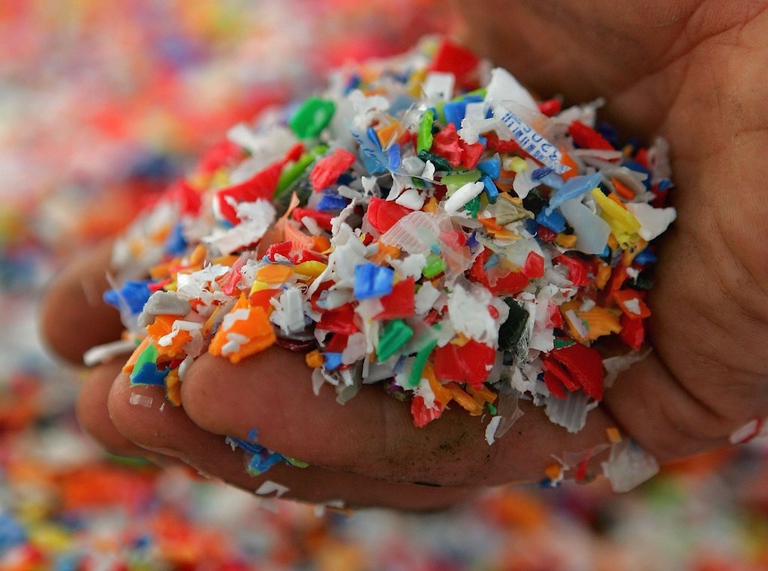
of plastics that have been discarded across the globe in the past decades, only 600 million m.t.

Plastics manufacturing is predicted to account for 20% of global petroleum consumption in 2050, contributing substantially to greenhouse gas (GHG) emissions and carbon pollution (2). Plastics have revolutionized modern life, but our reliance on these inherently nondegradable materials is causing a global pollution crisis (1).

Our seven-part guide helps you minimize your personal role in the climate crisis - and reduce your eco-anxiety.Finding solutions to the plastic waste problem will require public-private partnerships, innovation in deconstruction and upcycling technologies, and the invention of new recyclable-by-design materials. Sign up for CNN’s Life, But Greener newsletter. This story has also been updated to include a response from the American Chemistry Council. Update: This headline has been updated to clarify that individuals may consume up to a credit card’s worth of plastic every week. If we all actually band together, come together and put in place the solutions, we can solve this within the generation.” “And no one can sit on the sidelines, no one can say someone else will do it. “What it does take is everyone, every company, every government, every individual putting in the effort to make it happen,” Lau told me. We are a throwaway culture in the United States, thinking nothing of tossing a half-full water bottle or the Styrofoam packaging that came with your latest online purchase. Part of the change will need to come from individuals. “For example, we had spoken with one manufacturer of food, I won’t name them, but they basically said, ‘It’s much faster for their machinery to use plastic as a packaging than paper or other things.’ So if they can make things faster, it’s cheaper for them overall.” “Plastic is one of the cheaper materials out there in the world today,” said Winnie Lau, who works on the reduction of plastic for the Pew Charitable Trusts. Nearly 100 countries have banned plastic grocery bags.īut those efforts have, to date, run into the profit margin. The UK has banned plastic cutlery, straws, drink stirrers, plates and Styrofoam containers, as well as beauty products containing microbeads. There are some efforts around the world to limit single-use plastics. Which means it lingers in our environment – and leads us to consuming bits of microplastics every day, week, month and year. Which gets us to point #1 above – that there is no easy or simple way to break down plastic. “We know that despite the plastic industry’s PR blitz around the importance of recycling and the viability of recycling, only about 9% of plastic gets recycled,” Cobb told me.

More than a third of all plastic goes into packaging, which is, by its nature, single use. So there are incredible important applications for plastic.”ġ) Plastic is man-made and there’s nothing in our natural environment that breaks it down. “Plastics have transformed the medical industry. “Think about the plastic tubes in a respirator, think about a blood bag, think about tiny IV tubes for, say, a premature baby,” Cobb told me. Plastic is now a part of almost every element of modern life – from the keyboard I am writing this on to the computer that allows me to upload it to the internet to the phone that you’re reading it on.Īnd it has, unquestioningly, done quite a bit of good. The plastic boom was on – and we’ve never looked back. And post-war, there were factories ready and willing to mass produce all of the plastics that people has begun to rely on. Out of the research done during the war came things like nylon and polyethylene – the most common form of plastics these days. (Plastic itself is a catch-all term that simply means that it is easy to form and mold.) The plastics industry saw an opportunity – and lobbied the government to fund efforts to develop new forms of plastic. The omnipresence of plastic in our lives is actually a relatively recent invention.ĭuring World War II, metals and even rubber were scarce commodities. The American Chemistry Council disputes the idea that we may consume a credit card’s worth of plastic every week, noting that other independent studies have shown that microplastics are far less of a problem than the WWF report suggests.


 0 kommentar(er)
0 kommentar(er)
